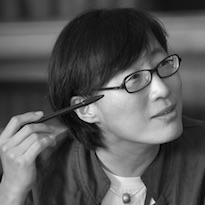GS6 Speakers
Sun-Young Rieh
Professor, Department of Architecture, University of Seoul, Korea.
Gender Analysis of Urban Public Rental Housing Guidelines in Korea (download presentation here ![]() )
)
Parallel Session 2: Workshop on Gendered Innovations in Research
Sun-Young Rieh is a registered architect in Korea and the U.S. Currently she is a professor in the Department of Architecture, University of Seoul, Korea. Her research has focused on the gender conscious environment and sustainable design. She led the research project Women-Friendly City, Seoul, in 2006 which set the direction of gender conscious environmental policy of the metropolitan Seoul government. She was responsible for neighborhood design in the city of Sejong, new administrative city of Korea, focusing on the special needs of women. She is the co-author of "Gender Analysis of the 2030 Seoul Plan" published in 2013.
Rieh studied architecture at Seoul National University and earned M. Arch degree from Univ. of California, Berkeley. She received Arch.D degree from University of Hawaii. In 2007 she taught at the school of architecture at the University of Hawaii as a Fulbright visiting scholar. She served as a board member for AIK (Architectural Institute of Korea) and KIA (Korean Institute of Architects). She is currently the vice president of KOWSAE (Korea Women’s Society of Architects & Engineers).
Summary of talk for Gender Summit 6 Asia-pacific:
This research questions whether women’s differentiated needs from their living environment are embedded in the public housing guidelines in Korea. Accessibility to community facilities, safety, universal design and flexible units supporting life cycle and lifestyle are among the issues addressed. The current guidelines are shown to be insufficient in terms of the plan and community facility layout to achieve a gender sensitive environment. Firstly, guidelines for parking areas, location of specific facility, provision of piloti space tend to exclude the possibility of natural surveillance for public and semipublic spaces. Secondly, the middle class myth of marriage blocks the possibility of adaptability based on resident’s diverse life styles of. Lastly, scattered community facilities don’t support accessibility in terms of security. In addition to weak standards, distorted visual representations of females are also found.

